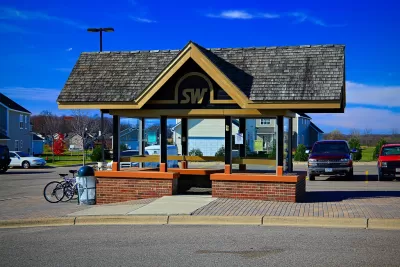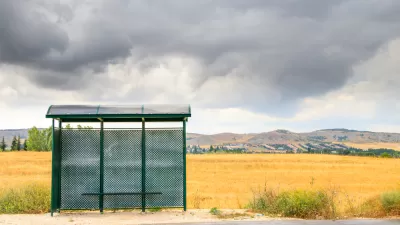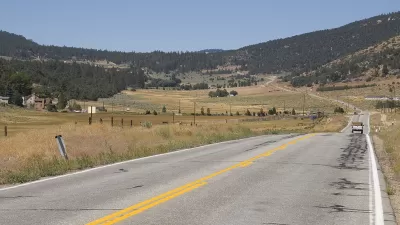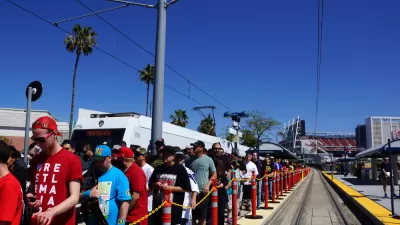Transit advocates were pleasantly surprised to hear senators address specific questions about the 80/20 split in transportation funding, transit operations, and rural transit needs.

Unlike most years, when public transit gets so overlooked in the federal surface transportation reauthorization bill that many have taken to calling the package "the highway bill," the "[s]enators in the committee charged with writing the public transit portion of this law—up for reauthorization this September—surprised us at a recent hearing with questions that got to the heart of the policies keeping U.S. public transit behind." Transportation for America's director Beth Osborne testified before the committee as senators asked questions aimed at understanding "the 80/20 split between highway and transit funding, the value of funding transit operations, and rural transit needs," writes Jenna Fortunati in the Transportation for America blog.
The federal Highway Trust Fund has, since 1982, allotted 80 percent of its funding to highways and 20 percent to public transportation. "The logic behind this was that since the Trust Fund’s funding came from the gas tax drivers pay at the pump, most of the funding should be spent on highways." In a bright spot for transit advocates, "[t]he three COVID-19 relief packages broke this tradition by providing operating support to transit agencies." When questioned about funding transit equally, Osborne told the senators "this is what we need to do to give people multiple modes of travel."
According to Transportation for America, funding transit operations in addition to maintenance and capital "will bring a return of more riders" by providing more frequent and reliable service. Osborne also emphasized the importance of funding rural transit, where many residents don't own cars. "[W]e forget that there are concentrations of people who live in distinct towns, and that services they need—like hospitals and schools—are moving farther away, consolidating into centers that serve entire regions. We need transit that can connect people to those regional hubs."
FULL STORY: Senators hone in on 80/20 split, transit operations funding at Banking hearing

Planetizen Federal Action Tracker
A weekly monitor of how Trump’s orders and actions are impacting planners and planning in America.

Restaurant Patios Were a Pandemic Win — Why Were They so Hard to Keep?
Social distancing requirements and changes in travel patterns prompted cities to pilot new uses for street and sidewalk space. Then it got complicated.

Map: Where Senate Republicans Want to Sell Your Public Lands
For public land advocates, the Senate Republicans’ proposal to sell millions of acres of public land in the West is “the biggest fight of their careers.”

Maui's Vacation Rental Debate Turns Ugly
Verbal attacks, misinformation campaigns and fistfights plague a high-stakes debate to convert thousands of vacation rentals into long-term housing.

San Francisco Suspends Traffic Calming Amidst Record Deaths
Citing “a challenging fiscal landscape,” the city will cease the program on the heels of 42 traffic deaths, including 24 pedestrians.

California Homeless Arrests, Citations Spike After Ruling
An investigation reveals that anti-homeless actions increased up to 500% after Grants Pass v. Johnson — even in cities claiming no policy change.
Urban Design for Planners 1: Software Tools
This six-course series explores essential urban design concepts using open source software and equips planners with the tools they need to participate fully in the urban design process.
Planning for Universal Design
Learn the tools for implementing Universal Design in planning regulations.
Heyer Gruel & Associates PA
JM Goldson LLC
Custer County Colorado
City of Camden Redevelopment Agency
City of Astoria
Transportation Research & Education Center (TREC) at Portland State University
Camden Redevelopment Agency
City of Claremont
Municipality of Princeton (NJ)





























